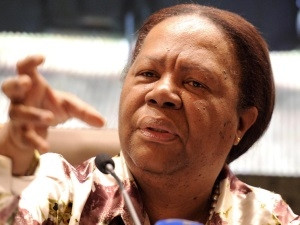
Despite research firms and organisations being vocal about the importance of technology and innovation as catalysts for economic growth, SA's investment in these sectors continues to lag behind.
Delivering her budget speech this week, science and technology minister Naledi Pandor said SA is not investing enough in science, technology and innovation.
Pandor warned that failure to address the funding of this sector is causing the country to neglect several sectors that could offer South African talent, new products and real contributions to growth.
"If we do not change this trend, we will be overtaken by nations that have less capacity and knowledge resources than we have," she said.
Richard Hurst, senior analyst at Ovum, says investment in technology and innovation is as important as breathing.
He says: "In the current state of our economy, which is desperately seeking growth, we need to move away from these so-called older economic models and embrace the new wave or revolution of the information economy. To become a meaningful player in this environment, we will need extensive investment on the part of both the public and private sectors in the development of ICT technology and innovation."
Economic boost
According to Pandor, innovation can also play an important role in improving local service delivery and addressing the challenges facing local governments.
An Accenture report found digital technologies are at the heart of public service transformation and act as a catalyst for economic growth and government innovation.
To become future-ready, a government needs to drive digitalisation (innovation) proactively, notes the report.
"A future-ready government should also have an entrepreneurial and performance-driven workforce of digitally-savvy administrators committed to driving innovation and capable of addressing the complexities of increasingly virtualised business," reads the report.
Speaking at the inaugural Science Forum South Africa at the CSIR last year, Pandor said despite receiving minimal attention from most governments, the science and innovation sectors have the potential to solve numerous perennial problems.
Hurst agrees and says one of the key benefits of an increased investment in technology and innovation will be the country's ability to compete in the global economy. "An example of this would be services and solutions driven by local needs that could be exported and used to create opportunities for foreign investment."
Mauritz Venter, ICT research analyst at Frost & Sullivan Africa, believes science, innovation and technological advances are major driving factors behind economic performance and growth.
"When used efficiently alongside appropriate government policy, scientific advances and technological processes can be linked to improved competitive advantage (at an industry and national level), wealth creation as well as overall improvements in the quality of life," says Venter.
Same old budget
While pundits agree investment in technology and innovation is vital for the transformation of SA's economy, the department in charge of driving the country's innovation initiatives was allocated a budget of R7.4 billion for the 2016/17 financial year, the same as last year.
Despite this, Pandor said the department is making good progress in building a strong national system of innovation.
Young people have been identified as those most in need of support through skills development and enterprise creation, she said. "We intend to strengthen our efforts to reach the youth."
In this regard, the department plans to host an inaugural youth assembly on the knowledge economy. This will provide a forum for young people to learn how to create businesses and social enterprises using advances in technology and knowledge.
According to Hurst, SA has demonstrated several times it has the ability to innovate and create solutions. "However, these entrepreneurs and innovators find no fertile ground and languish or leave our shores, thus denying the country the direct benefits."
Looking ahead
For the 2016/2017 financial year, the DST will pilot a grassroots innovation initiative with a R2 million investment that will focus on supporting innovators and technology entrepreneurs in the informal sector and marginalised communities.
It will be, and is, crucial for SA to actively invest in the technology and innovation sectors to remain relevant in terms of global scientific and technological trends, says Venter.
He explains: "Recent advances in ICT, such as the growth in Internet of things devices and cyber physical systems, are being earmarked as the next (fourth) industrial revolution and are expected to fundamentally alter the way we live, work and relate to one another.
"South America, Eastern Europe and Africa will be the fastest growing regions through 2025, and smart manufacturing would allow for emerging markets to surpass industrialised economies and capitalise on an ever-more connected era.
"Technological innovation can see SA capitalise on these global advances and trends, but it requires government initiatives to ensure the country has the necessary skills and facilities to remain on the forefront of global innovation," notes Venter.
Share